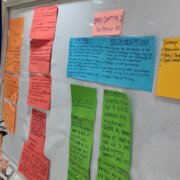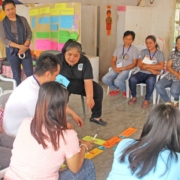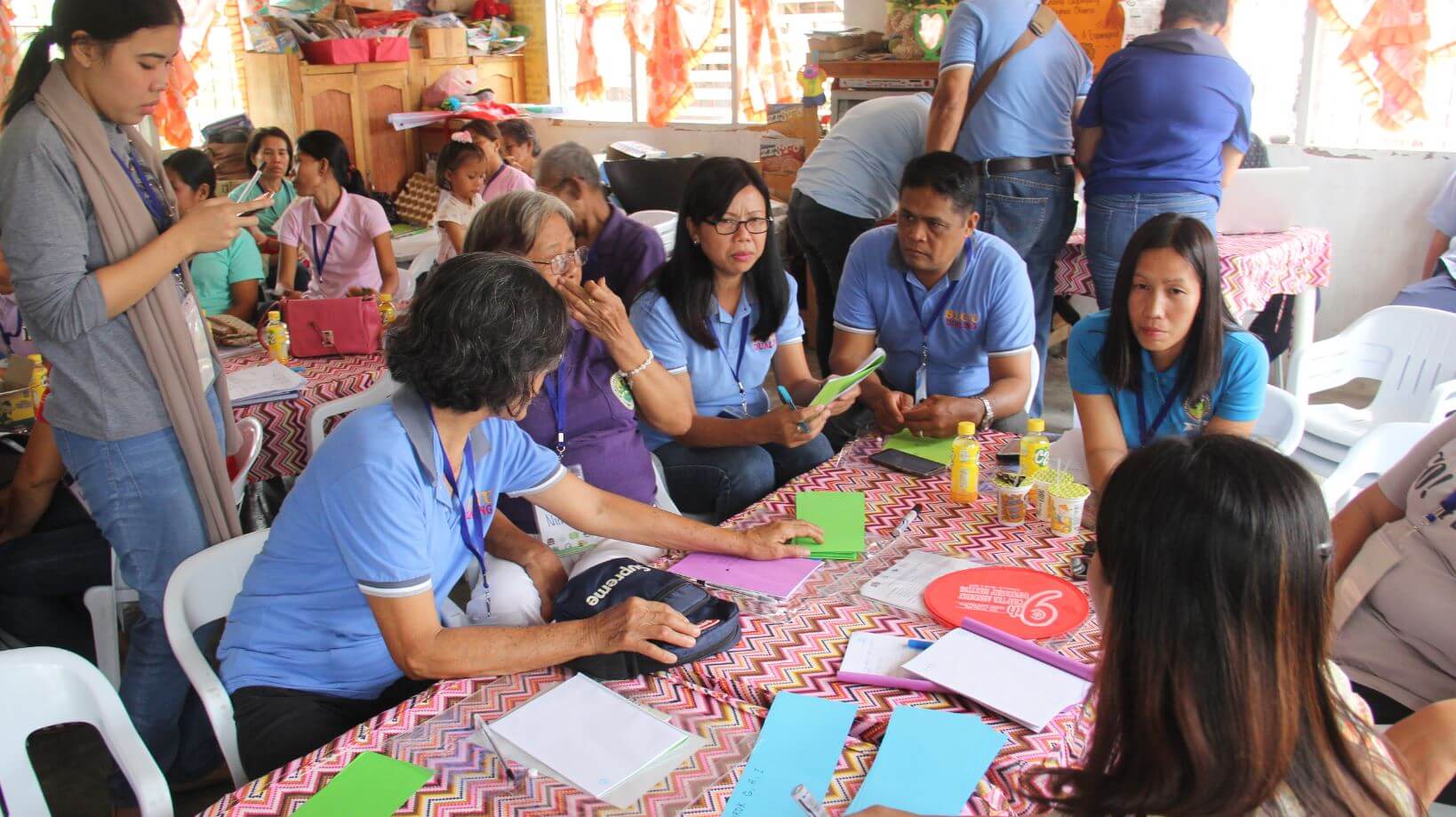Turning struggles into opportunities: A community’s response to the damaging effects of flood water and access to life-sustaining potable water
The community of Barangay Caimpugan in San Francisco, Agusan del Sur sits along the Gibong River—a source of irrigation for some 6,000 hectares of rice fields in three municipalities of the province. Because of its close proximity to the river, its residents often experience floods during the rainy season, especially with heavy rains induced by tropical storms causing the river to overflow.
This particular characteristic makes the community reliant on agriculture, the majority of their arable lands are dedicated to rice farming. The river provides water for their crops and sustains the irrigation even in dry months. Although this also poses a threat of flooding when the river overflows damaging crops that are not yet harvested. Those who do not have lands to till are earning as farmhands s, mostly the men, being paid a daily wage. Others find work in nearby palm oil tree plantations. The earnings would always almost barely suffice for the family’s needs attributable to the impacts of the floods on their crops. Hence, they already learned to live with it and coping with the insufficiency.
Despite being a low-lying land, clean and safe drinking water source is a recurring challenge. The barangay is not covered by the public water utility services of San Francisco. Rainwater is collected and used by households for cooking, washing their dirty dishes and clothes, and even for drinking. Others buy drinking water from small business owners retailing water in limited quantities or from refilling stations in Barangay Lapinigan.
For the Caimpugan Women for Strength (CAWOFS) Cluster Level Association, a federation of 6 self-help groups (SHGs) composed of women, this reality does not deter them from aspiring for a better future.
What they needed was a sustainable source of livelihood to be able to contribute to their families’ income while striving to learn more about the ways they can reduce the impacts of flooding to their community.
An opportunity came with the contingency planning and resilient livelihood workshop through the I-RESPOND 2, a project funded by Kindernothilfe (KNH) and implemented by Action Against Hunger aimed at improving the capacities of partner barangays on disaster preparedness and resiliency. CAWOFS actively shared their ideas and together with their barangay, local government unit (BLGU) leaders learned how they can best prepare for and mitigate the impacts of disasters. The Barangay Disaster Risk Reduction and Management Council (BDRMC) was strengthened with the inclusion of the officers and members of the CLA into the different committees. Together with the BLGU, they were able to develop a contingency plan on floods.
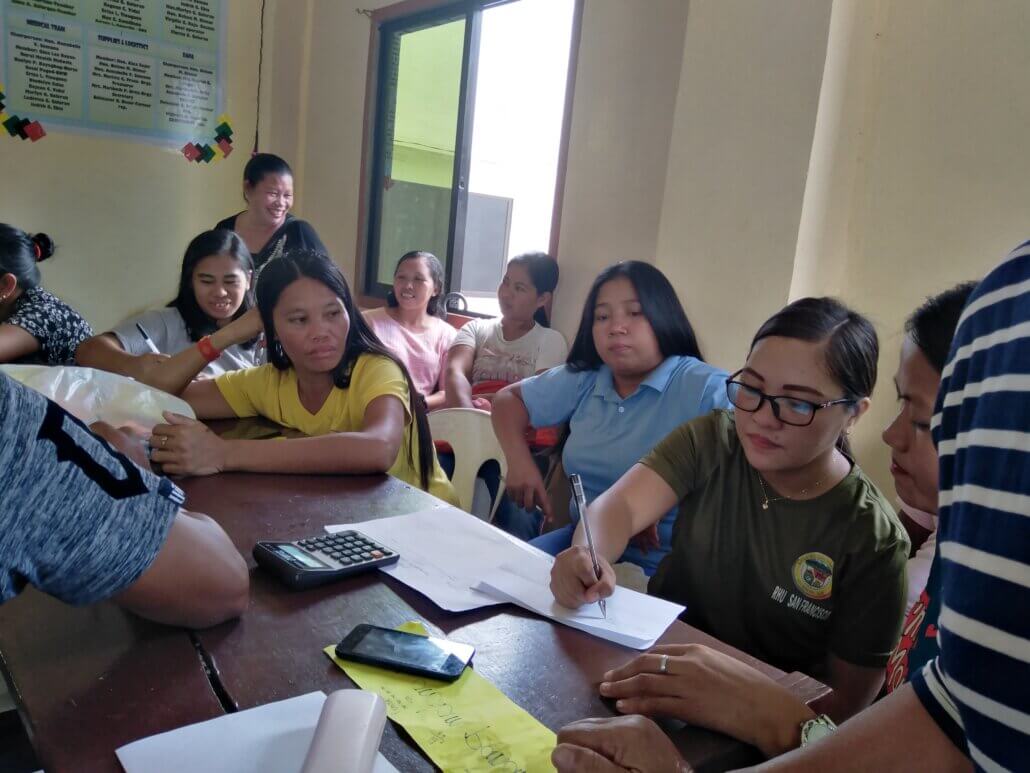
The Resilient Livelihood discussion also helped them craft a plan to provide earning opportunities for their members while helping to solve one of the community’s problems – clean water supply. They developed a business plan around the distribution of safe drinking water to households. Their business will sell water in 20-liter containers supplied by a partner water refilling station from Barangay Bayugan, roughly 9 kilometers away from their barangay. Based on the contingency plan and working on the scenario of recurring flooding, the CLA will utilize the early warning system they installed to ensure that the water will be potable and not contaminated. These efforts are complemented by the BLGUs commitment to provide them a space to use as their store and the Municipal LGU contribution for the construction of a building. This would serve as the group’s warehouse to stock water containers, and distribution point.
On January 28, 2020, the group received the seed capital worth fifty thousand pesos (PhP50,000.00) from the I-Respond 2 through a local KNH NGO partner, the Foundation for the Development of Agusanons, Inc. (FDAI) based in San Francisco. With the seed capital, the CLA leaders conducted preparatory activities including promotion and orientations to the Self Help Groups about the business venture. Originally, the plan was for the CLA to manage the business. But as discussions went on, they decided that Volunteer SHG, one of the self-help groups of the CLA, will handle the business with the supervision of the CLA and FDAI. A profit-sharing approach was identified and agreed to remunerate efforts at both levels. Volunteer SHG will then assign its store manager and storekeeper as laid out in the business operation plan for its operation.
“This business will help us a lot. Everyday people need clean drinking water. And every day is a challenge for most households. We know that the rainwater is not as clean anymore. But we have no choice but to use it”, said Lilibeth Lalangan, the CAWOFS President.
Now, with the operation of the water refilling business, members of the Volunteer SHG will have another source of income while providing access to clean drinking water for the community.
“With the increased knowledge of the CLA officers and members, combined with that of the BLGU leaders, Caimpugan is now more prepared to minimize or prevent the disastrous effect of flooding in our barangay”, said Barangay Councilor Annabelle Semana.
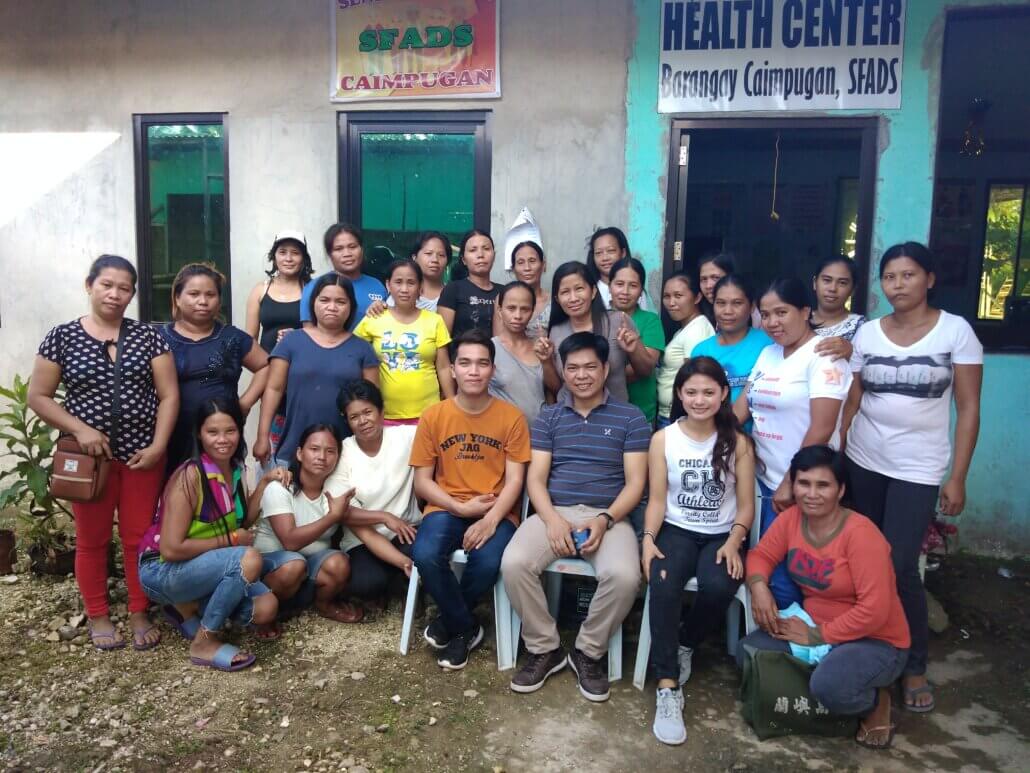
For Barangay Councilor Vilma Malinao who is also a CLA leader, “the water refilling business is CAWOFS’ way to help the community have access to safe drinking water at an affordable price. Water can sustain us even when flooding occurs. This also means additional income for our members. We are thankful for the I Respond 2 Project, to KNH, Action Against Hunger and FDAI”.
Written by Genaro Sanchez for Action Against Hunger. Edited by Joyce Sandajan.


